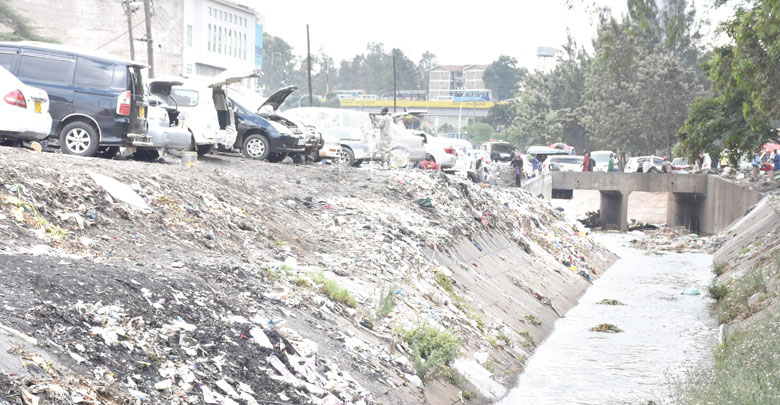State agencies to partner in Nairobi River rehabilitation

The government has adopted a multi-sectoral approach to rehabilitating the Nairobi River following reports that it is contaminated by over 1,400 pollutants.
Water and Sanitation Cabinet Secretary Simon Chelugui said the ministry will engage various State agencies in a bid to restore the river, through the Nairobi regeneration project.
Speaking in Embu at weekend, the CS said he was confident measures being put in place will curb pollution.
“A multi-sectoral approach has been adopted which will with identify industries, companies, individuals polluting Nairobi River and others to be dealt with appropriately and legally.
The team is going to identify sources of river pollution, reclaiming riparian land, initiating landscape management activities which include tree planting, among others,” he said.
At the same time, Interior Cabinet secretary Fred Matiang’i said he will work with his counterpart at Maji House to map all the water installations and secure them.
“Bring us the list of such persons, industries, and they will face the law, such pollutants must realise that they must address issues of environmental protection and conservation carefully and in a disciplined way,” he said.
Chelugui said despite widespread pollution, little emphasis was given to wastewater management.
“Due to a sharp increase in water demand for domestic, industrial, agricultural and other uses, wastewater increased rapidly but with no commensurate investment in sanitation infrastructure. This led to most of the effluent being discharged directly into the water bodies,” he said.
“This pollution problem must be confronted in an integrated manner involving Ministry of Water and Sanitation, County governments and water services providers,” Chelugui added.
Tough action
Two weeks ago, Chelugui vowed tough action would be taken against those emitting toxic waste to the river including industries which have been identified as culprits.
“The level of pollution effluent, defecation and waste from our settlement areas needs to stop now. This will be so painful because industries will close and estates will be displaced,” he said.
“When we have heavy deposits of metals such as manganese, lead, mercury in our rivers, we are killing our people. There are people downstream drawing water for domestic use or farming,” he added.












